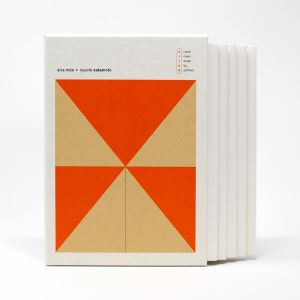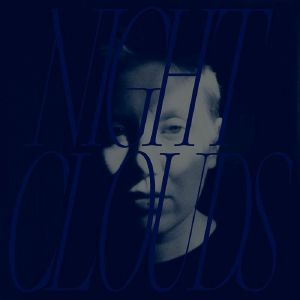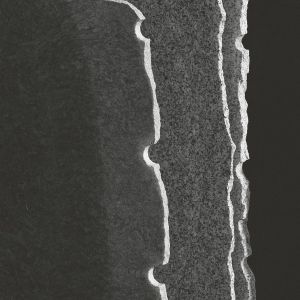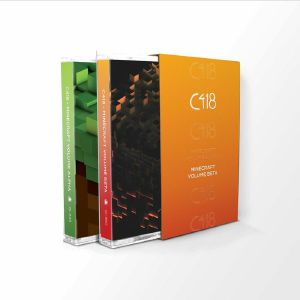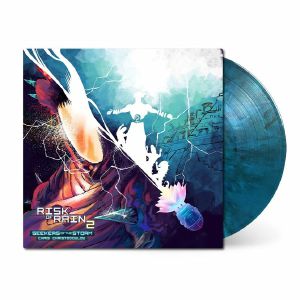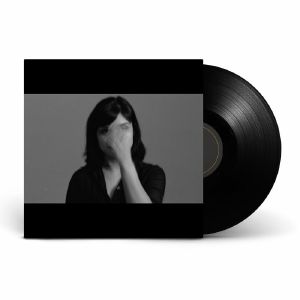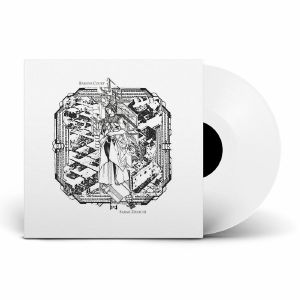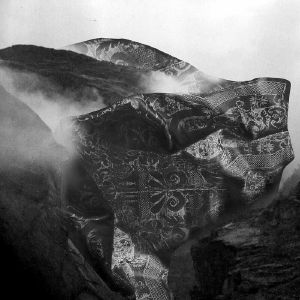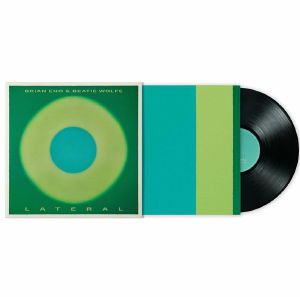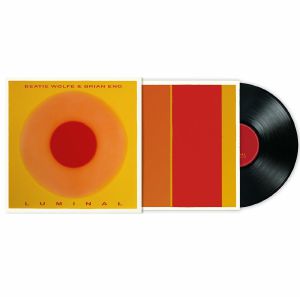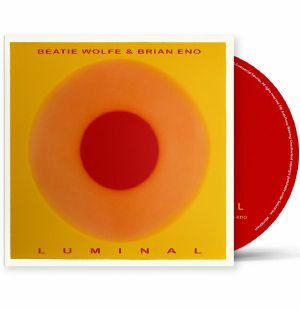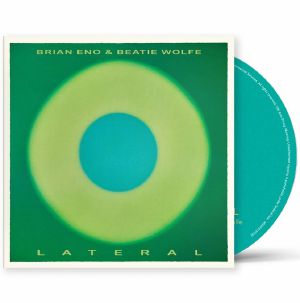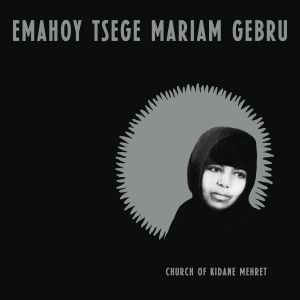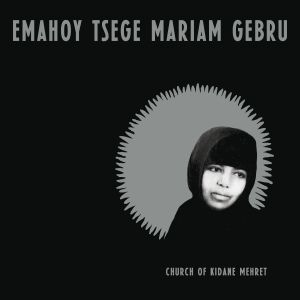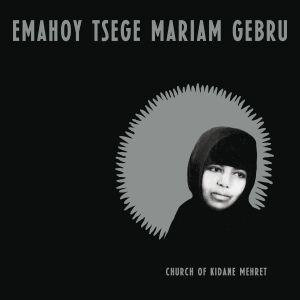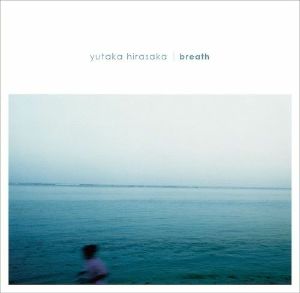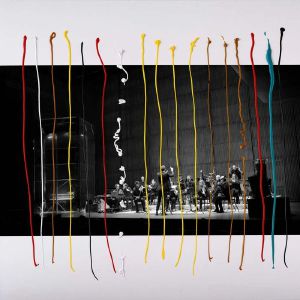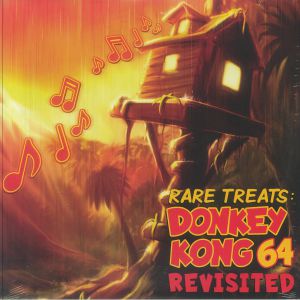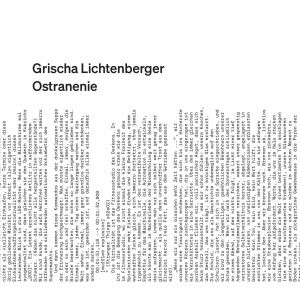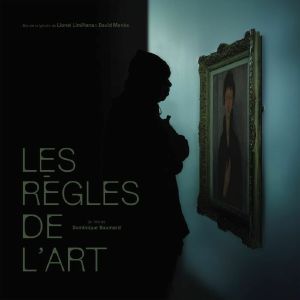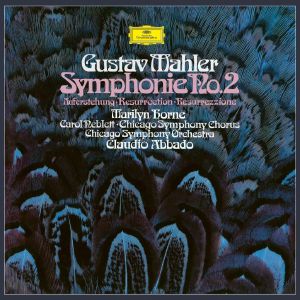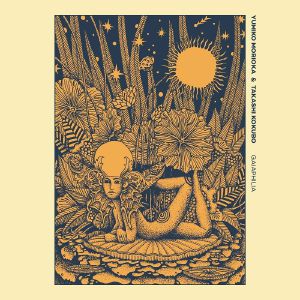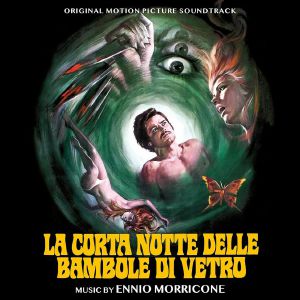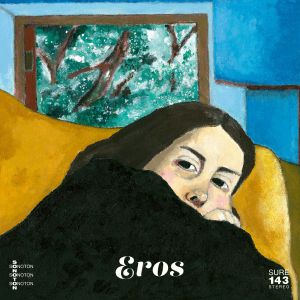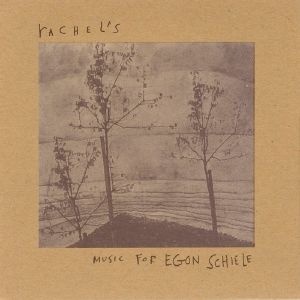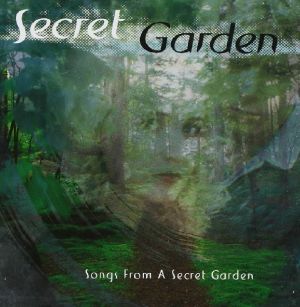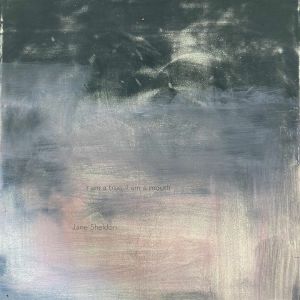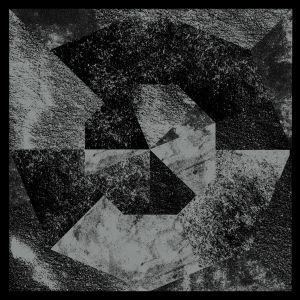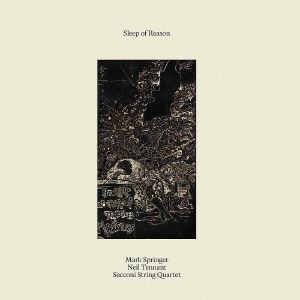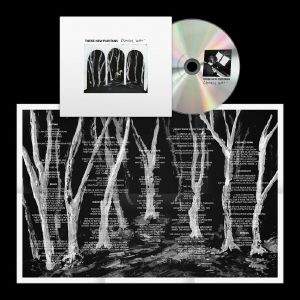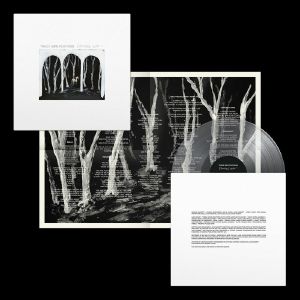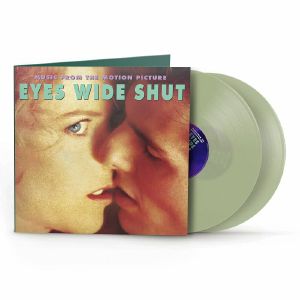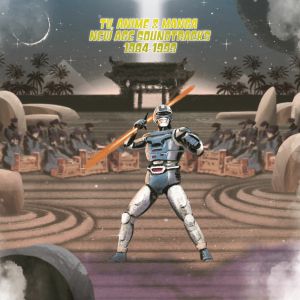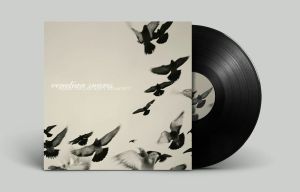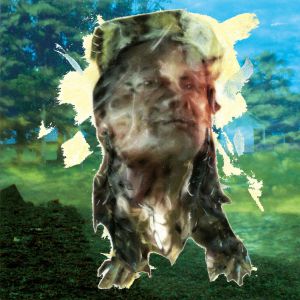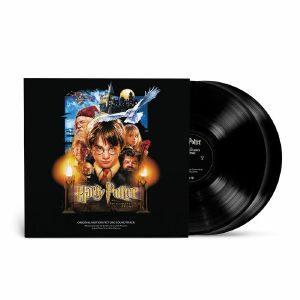New releases last four weeks: Modern Classical
Modern Classical vinyl released in the last four weeks
1~42/42(ページ1/1)の商品
Review: This beautifully presented box set gathers all five albums from Alva Noto and Ryuichi Sakamoti's V.I.R.U.S series, a collaborative project spanning five albums originally released between 2002 and 2011. Disc one (Vrioon) sets the tone, with Sakamoto's beautiful (and frequently effects-laden) piano motifs rising above glitchy minimalist rhythms and experimental ambient soundscapes. The albums that follow offer subtle shifts in their collaborative sound whilst retaining the same core artistic approach, with the pair frequently alternating between poignant, slow-burn minimalism and emotive, mood-enhancing ambient maximalism. Throughout, the pair beautifully balance hard-wired electronic experimentalism with classical musicality.
… Read more in stock $180.94
Review: Swedish composer Ellen Arkbro's Nightclouds is a deeply introspective and romantic turn that collects five solo organ improvisations recorded across Europe in 2023-24. Departing from installation-based compositions, Nightclouds explores slow, chordal improvisations rich in texture and atmosphere while drawing on sacred music, ECM jazz and minimalism. Along the way, Arkbro creates immersive soundscapes that balance austerity and emotional depth while shifting between meditative stillness and modernist tension with standout recordings like 'Morningclouds' and two variations on the title track. Through meticulous mic placement and tonal clarity, Arkbro draws you in with the intimacy and vastness of her sonic world.
… Read more in stock $28.04
The Gentlemen (Soundtrack) (limited numbered 180 gram audiophile translucent yellow vinyl LP + 4 booklet)
Cat: MOVATM 276Y. Rel: 06 Jun 25
Review: The Guy Ritchie-penned film The Gentlemen centres on Mickey Pearson (Matthew McConaughey), an American in London whose luxurious lap founders on the back of a lucrative but prone marijuana empire. As he plans to retire and sell his business, a web of schemes, blackmail, and betrayal unfolds as rivals plot to seize his fortune. British composer Chris Benstead's soundtrack is elusive and sluicing, incorporating Charleston-inciting bass undertows, ticking clocks and finger-clicking inquests, as of a main character's paranoia threatening to make truly manifest.
… Read more in stock $31.99
Cat: RM 4238CD. Rel: 12 May 25
Review: With a title inspired by the utterances of The Oracle of Delphi, a cult of female priestesses who reportedly "changed the course of civilisation" by inhaling volcanic vapours, it's clear that Lee Burtucci and Olivia Block's first collaborative album is rooted in paganistic visions and experimental mysticism. It's comprised of two lengthy tracks, each accompanied by edited 'excerpts', and combines Burtucci's experimental synth sounds and tape loops with Block's processed vocalisations and hazy field recordings. Dark and suspenseful, with each extended composition delivering a mixture of mind-mangling electronics, creepy ambience and musical elements doused in trippy effects, it sits somewhere between the charred "illbient" of DJ Spooky and the deep space soundscapes of the late Pete Namlook.
… Read morePlayed by: Juno Recommends Ambient/Drone
in stock $15.29
Minecraft Volume Alpha & Beta (Soundtrack) (double cassette in slip-case)
Cat: GI 444CS. Rel: 12 Jun 25
Review: And the award for best box set idea of the year goes to Ghostly International, who've recognised the untapped crossover market potential between tape culture and architecturally minded 3D sandbox gaming. Both Minecraft and cassettes offer unequivocal home downtime experiences, so what better way than to celebrate such ingenious associations than with a mammoth expansion of Daniel Rosenfeld's original soundtrack under the name C418? After many vinyl and CD reissues became fanatic cult favorites, with several sold-out color variants, now both volumes Alpha and Beta appear in opaque green; assuming the rewind button functions properly and the reels haven't garbled round the spools, you're in for a degradable lo-fi treat and analogue alternative listening experience; mute the laptop output and fire up the Nakamichi, you wally.
… Read more in stock $26.34
Cat: LM 001CD. Rel: 29 May 25
Review: While he may well be best-known for his nostalgic, synthesiser-powered Warrington-Runcorn New Town Development Plan project, Gordon Chapman-Fox has also put out some fine music under his given name - not least 2023's ambient opus on Castles In Space's 'Subscription Library' offshoot. On Very Quiet Music To Be Played Very Loudly, Chapman-Fox delivers four expansive ambient soundscapes. He sets the tone with the Vangelis-esque synth suspense and spacey creep of 'Components', before opting for sustained, almost neo-classical sweeps and delay-laden electronic string sounds on 'Fringe'. 'Emphasis' is immersive and quietly picturesque, while closing cut 'Singular' is dark, moody and quietly paganistic - a kind of imaginary soundtrack to a 21st century folk-horror movie.
… Read more in stock $12.18
Risk Of Rain 2: Seekers Of The Storm (Soundtrack) (180 gram blue, white, green & black marbled vinyl LP)
Cat: BSR 142. Rel: 20 May 25
Review: The soundtrack for Risk of Rain 2's Seekers of the Storm, is here making its vinyl debut, and it's an edition fans won't want to miss. Composed by Chris Christodoulou, with a special contribution from Stavros Markonis, this release brings some atmospheric and powerful music to life on a stunning looking record. The vinyl itself is a visual treat, featuring a striking blue, white, dark green, sky blue, and black marbled design. This soundtrack is housed in a beautifully crafted gatefold sleeve with artwork by Daniele Giardini. Christodoulou's compositions delve into new, unexplored territories with a blend of intense and emotive pieces. The use of a seven-string guitar adds a new layer of depth to the music, delivering some of the most elaborate and heavy tracks ever written for the series. Markonis' contribution introduces a fresh sound, seamlessly integrating into the Risk of Rain universe while also bringing something unique to the table. The recent uptick in soundtracks released on vinyl have really shown that fans love connecting with the music of many movies and TV shows. Even if you may not know the series, this is one the best in recent weeks for you to enjoy.
… Read more in stock $46.43
Review: Ambre Ciel is a Montreal-based composer and singer known for her dreamy, spacious soundscapes. Drawing from impressionism, American minimalism and contemporary classical music, her work blends layered violins, piano and ethereal vocals in both English and French so is a sophisticated and stylish sound. Coming from a family of artists, she began with violin at six, later experimenting with pedals, loops and harmonies. Her debut album Still, There is the Sea marks a delicate yet bold entry into her sonic world and is a deeply personal, atmospheric journey shaped by strings, acoustic textures and voice. It's an imperfect beginning, as she calls it, but one brimming with intention and beauty.
… Read more in stock $25.77
Review: A fourth full length from the Montreal-based enigma. Sarah Davachi's electroacoustic compositions have become the stuff of legend and hallucination-inducing live shows, refrains that bore into your mind then soul, detailed and complex ideas borne out in minimalist moods capable of taking listeners beyond themselves, out to somewhere completely new. Talk about a curveball, then. All My Circles Run features five totally unique compositions which all share one common trait - they eschew synthesisers and instead each focus on a different instrument. Hence the titles. 'For Strings', 'For Voice', 'For Piano', 'For Organ', 'Chanter'. But, although the record's core parts represent a different move for the musician, Davachi's incredible ear for subtly powerful sounds remains at the centre of the experience. So prepare to be blown away again. Gently.
… Read more in stock $29.17
Review: Originally released in 2015, this reissue returns to the stunning debut full-length from Canadian electroacoustic composer Sarah Davachi, who is rapidly becoming a big deal in the world of experimental sounds. Emerging from brief but acclaimed releases on labels like Important Records' Cassauna and Full Spectrum, this album marked her as a unique voice within the world of minimalist and experimental sound. Trained at Mills College, Davachi's work reflects a deep understanding of synthesis and acoustic instrumentation, with a focus on patience, atmosphere and tone over flashy modular theatrics. Rather than overwhelming the listener with density, Davachi builds a deep listening album full of impressive tracks. Vintage synths like the Buchla 200, EMS Synthi and Prophet 5 provide an enveloping tonal palette that reveal the composer's intent to create a more intimate, hybrid sonic language. The opening track 'heliotrope' unfolds like smoke rising into a high ceiling, shimmering with evolving harmonic detail. 'wood green' moves from near-silence to a radiant calm. An album of introspection and careful design in a world of maximalist electronics, a rare piece of compositional grace. Its return in reissue form feels not only deserved but necessary.
… Read more in stock $34.26
Reverie (red vinyl LP + MP3 download code in spot-varnished sleeve limited to 300 copies)
Cat: PATTERN 013LP. Rel: 02 Jun 25
Review: Longfound Norweigan friends Erik Skodvin and Otto Totland pair as Deaf Center, a duo whose name plays cleverly on the notion of good hearing depending on a core of silence. Resurfacing from such nucleic muteness after five years, their new pair of extended pieces, Reverie, finds a disquiet daydream drawn from a rare live set transmitted in October 2024 at Morphine Raum, Berlin. Their first publication since 2019, it sees them in the fullest unconscious "zone", improvising, responding, encircling each other in real time. Smears of timestretched piano abound on 'Rev', while 'Erie' shoots for overtonal tension on an implied, rippling lakeshore. The music is at once gargantuan and contained, revolutionarily collapsing binaries of big and small.
… Read more in stock $45.30
Pale Ravine (20th Anniversary Extended Edition) (CD limited to 300 copies)
Cat: MIACD 035. Rel: 30 May 25
Review: Deaf Center's debut LP gets a 20-year anniversary reissue on CD, pairing the original 2005 album with 20 minutes of unreleased material from the same sessions. Originally out on Type, Pale Ravine marked the first full-length by Erik K Skodvin and Otto A Totland, who've since carved solo paths via Sonic Pieces. Drifting between chamber composition, shadowy electronics and the hiss of old tape, the record draws on their Norwegian roots and personal family histories. Grainy textures, ghostly pianos and wind-blown field recordings conjure a mood somewhere between forgotten reels of silent film and weather-worn Nordic folklore.
… Read more in stock $21.80
Basho/Still Forms (LP + MP3 download code)
Cat: SPGRM 012LP. Rel: 12 Jun 25
Review: Portraits GRM offer a split release between Beatrice Dillon and Hideki Umezawa, riffing on 'basho' and Baschet respectively. Dillon's 'Basho' is shaped on the mortar of a Japanese philosophical concept: conceived by Japanese philosopher Kitaro Nishida, basho describes a post-physical plane in which experiences and thoughts interconnect, dissolving subject-object distinctions. Dillon and Umezawa's music both resist fixity, reactivating the listener's attention by way electronic sounds stripped of origin. Umezawa's 'Still Forms', however, contrasts Dillon's firm-footed techno curtails with an entirely beatless piece, exploring the sonic potential of Baschet sound structures: experimental instruments developed in the 1950s by Bernard and Francois Baschet. Electroacoustic cognitions branch out like newly grown synapses on this fresh 12".
… Read more! low stock $23.77
Review: Brian Eno, a towering figure in ambient music and a master of sonic landscapes, has shaped the contours of modern music through his production collaborations with iconic artists like David Bowie, Talking Heads and U2. His latest work with Beatie Wolfe, a conceptual artist from Los Angeles, encapsulates a career of endless reinvention. Recorded in London, the collaboration weaves together the worlds of alternative vocals and ambient soundscapes. 'Big Empty Country' serves as a vivid contrast between light and darkiits day and night versions embodying the very essence of Eno's immersive, evolving sound. Much like his work as part of Roxy Music and beyond, this release is both forward-thinking and introspective, grounded in a shared commitment to environmentalism and artistic exploration. It's a meditation on space, sound and feelingian unbroken thread in Eno's enduring legacy of artistic expression.
… Read more in stock $33.96
Review: Brian Eno, legendary master of ambient music and Beatie Wolfe, the LA-based conceptual artist known for her innovative blend of the physical and digital, unite for a collaborative sonic exploration. Throughout 2024, the two artists recorded material that bridges the boundary between deeply personal emotions and universal experiences, creating an evocative soundscape. The work pulses with the distinctive energy of Eno's ambient prowess, while Wolfe's haunting vocals add a layer of intimacy. On tracks like 'Milky Sleep' and 'Hopelessly At Ease', the listener is swept into a dreamlike state where time feels suspended. These moments of calm are balanced by the more urgent, yet still deeply meditative, 'Suddenly', which sways between serenity and tension. The delicate interplay between light and shadow becomes even more palpable on 'A Ceiling and Lifeboat', where the quiet sense of stillness gives way to a profound sense of rebirth. There's a sense of movement throughout the releaseiparticularly on 'Breath March', where rhythm and texture converge with palpable energy. Eno's atmospheric layers create space for Wolfe's voice to become a thread, guiding the listener through these reflective, almost sacred-feeling sonic spaces, where every note invites introspection and feeling.
… Read more in stock $33.96
Review: Brian Eno and Beatie Wolfe join forces on a dual release infusing two distinct musical visions rooted in shared environmental concern. Their new joint release unfolds across two sides, with Luminal offering a vocal-led collection leaning into alt-pop ambiances and timbres, before Lateral rears itself in counterpart as a seamless ambient composition, making up a study in contrast and connection. Recorded in London, the project reflects Eno's lifelong exploration of mood and atmosphere, alongside Wolfe's ongoing push to blur the lines of digital innovation and tactile experience. The project builds the activist art works of Wolfe, a British-American concept artist based in Los Angeles, named by WIRED as one of "22 people changing the world," and tracks the expression of music beyond language or form.
… Read more in stock $15.96
Review: Brian Eno's career has always been about explorationiof sound, technology and the emotional power of music. After pioneering ambient music, Eno has consistently sought out new ways to blend different genres and voices and his latest collaboration with Beatie Wolfe continues this tradition. Wolfe, a British-American artist with an innovative approach to music and activism, complements Eno's atmospheric world with her emotive, alternative vocals. Their work, recorded in London, moves seamlessly from the meditative to the experimental, with tracks like 'Big Empty Country' offering stark contrasts between the brightness of the day and the shadows of the night. This release is not only a nod to Eno's sonic experimentation but also a testament to his lasting influence as an artist who always seeks to connect art with broader societal issues, especially the environment.
… Read more in stock $15.96
Church Of Kidane Mehret (LP + booklet)
Cat: MRI 214LP. Rel: 22 May 25
Review: Mississippi Recs provide yet another delta stream's worth of Ethio musics by nun and composer Emahoy Tsege Mariam Gebru, presenting a remarkable body of work shaped by faith, solitude, and a deep reverence for sound. First self-released in 1972 and now enlarged over two formerly unheard piano pieces, this new curatorial crimp reveals Emahoy's profound engagement with the liturgical traditions of the Ethiopian Orthodox Church: all laid to record across sacred spaces in Jerusalem, they hear her play piano, harmonium and organ, with tactful piano fingers assuring a chiming touch on 'Ave Maria' and 'Essay on Mahlet', both religious chants heard to echo against ancient stone. Also inside are two compositions from the near-lost album Der Sang Des Meeres (1963), salvaged from obscurity and restored here with equal reverence.
… Read more in stock $27.17
Review: Some 13 years have now passed since Mississippi Records started reissuing private press albums by Emahoy Tsege Mariam Gebru, an Ethiopian Orthodox nun, pianist and composer whose naturally religious-inspired works frequently took spiritual music to fascinating new places. Here the label turns its attention to 1972's Church of Kidane Mehret, notable not only for being recorded live in various churches across Jerusalem, but also for the use of harmonium and pipe organ as well as Emehoy's beloved piano. The original album, which in line with her other album features intricate and mood-enhancing solo translations of orthodox liturgies, has here been expanded via the inclusion of two further piano pieces from 1963's ultra-rare Der Sang Des Reeres - a set of which only 50 copies were ever produced.
… Read more in stock $13.88
Church Of Kidane Mehret (clear vinyl LP + booklet (indie exclusive))
Cat: MRI 214LPC1. Rel: 22 May 25
Review: Emahoy Tsege Mariam Gebru's deeply spiritual music has long remained a hidden gem and this release offers a rare chance to experience her most poignant works. Recorded in churches across Jerusalem, her performances on piano, harmonium and pipe organ transcend genre that blends Ethiopian Orthodox liturgy with the technical sophistication of her classical training. There's a serenity to these pieces, particularly in 'Ave Maria,' where her piano's crystalline chimes fill the sacred spaces, while 'Spring Ode - Meskerem' brings new life to familiar melodies, played through the rich drones of the harmonium. The collection moves from meditative to dramatic, with 'Essay on Mahlet' offering a slow, introspective journey as Emahoy translates the free verse of Orthodox liturgy into a delicate piano composition. The inclusion of 'The Storm' provides a moment of intense contrast, its stormy narrative unfolding through sharp, thunderous piano lines. Emahoy's ability to blend devotional themes with emotional depth is most apparent in 'Via Dolorosa,' where the music mirrors the weight of the stations of the cross with breathtaking gravity. Her music, though niche, stands out for its seamless fusion of Ethiopian spirituality with the grand traditions of Western classical music, feeling entirely distinct in its expression. The recordings, originally made in 1972, show a stark simplicity and restrained power that speaks directly to the soul. It's a rare treasure and an essential contribution to the world of spiritual music.
… Read more in stock $30.57
Review: Producer and guitarist Yutaka Hirasaka enjoyed a peaceful career pitstop with Breath, one of many to top up the beatsmith and cassette artist's now towering discography, and which now comes released on vinyl for the first time. Hirasaka's approach to music covers ambient, beat-driven landscapes, a format which has led him both to immersive live performance work and commercial ends. The homely aesthetic of Hirasaka's sound is heard once more on the wordless, texturally unperturbed Breath, which clears our airways far better than any shop-bought nostrum ever could, be it via the deconstructed guitar pan-plays of 'Orion' or the marzipan piano maunders of 'Amaretto'.
… Read more in stock $56.62
They Live (Soundtrack) (Expanded Edition) (limited white vinyl 2xLP (comes in different sleeves, we cannot guarantee which one you will receive))
Cat: WRWTFWW 049. Rel: 23 May 25
Review: The Expanded Edition of Alan Howarth's They Live brings new life to the cult classic 1988 film's soundtrack. Howarth is well respected, not least for his collaborations with John Carpenter, and here captures the film's eerie tension and anti-consumerist themes with moody synths, bluesy motifs and minimalist sound design that is always hugely evocative. This expanded edition offers remastered audio and additional cues that heighten the mood and deepen the atmosphere. The music's hypnotic, slow-burning energy perfectly mirrors the paranoia and grit of the movie, so it's a landmark score in sci-fi and horror soundtracks.
… Read more in stock $55.78
Review: Jameszoo aka Mitchel van Dinther returns with a cinematic journey blending jazz and contemporary classical. Written for Dutch ensemble Asko Schonberg, percussion group HIIIT, and Jameszoo's trio, Music for 17 Musicians explores themes from his 2022 work Blind. Central is a self-governing player piano controlled by custom algorithms creating autonomous musical decisions which add a unique, experimental edge. The music reflects van Dinther's fascination with detaching composer identity to invite active, unbiased listening. It is packed with rich orchestration and smart electronic interplay that nods to Steve Reich's classic while pushing onto new frontiers.
… Read more in stock $26.90
Rare Treats: Donkey Kong 64 Revisited (Soundtrack) (gatefold 180 gram vinyl 2xLP)
Cat: MCOL 0444V. Rel: 20 May 25
Review: You don't sell 5.27 million copies of anything without doing something right. Winner of the E3 Game Critics award for Best Platform Game in 1999, to name just one of countless nominations and awards, Donkey Kong 64 was one of the best loved titles on the iconic Nintendo 64, and represented two years of programming, coding and designing on the part of legendary software house, Rare. Amazingly, considering this was almost three decades ago and cartridge-based titles are usually regarded as the stronghold of chip music, Grant Kirkhope's score is anything but and still sounds fresh. From aptly titled opener, 'DK Rap', to the meandering jazz closer 'Candy Kong', featuring David Leo Kemp on sax, via 'Angry Aztec' and its Indiana Jones vibe, and the John Williams-esque 'Mine Cart', it's all so enjoyable.
… Read more in stock $62.29
Review: A striking collection of digitally manipulated piano pieces, each one of them on this album are named after iconic films and TV shows. They are all crafted late at night as a response to passive media consumption and aim to blur the line between classical impressionism and contemporary digital manipulation. Drawing inspiration from Viktor Shklovsky's concept of "ostranenie" (which means estrangement), the work challenges habitual perceptions and makes the familiar feel strange. The music oscillates between mechanical MIDI chaos and intimate, fragile moments that question the emotional stakes of sound in a world where technology can often flatten deeper meaning. It's a profound exploration of art's role in resisting the numbing effects of mindless routine and endless immersion culture.
… Read more in stock $42.47
Cat: BEC 5615228. Rel: 21 May 25
Review: Dominique Baumard's 2025 detective comedy drama, Les Regles de l'art, is a chuckle-inducing exploration of art theft and scandal, reenacting a legendary pilfering of paintings from the Musee d'Art Moderne in Paris in 2010. The plot centres on the trio of thieves who stole €100 million worth of works of art by Picasso, Matisse and Modigliani; they were sentenced to prison, but the paintings were never found. Now the OST by soundtrack artists Lionel LimiNana (more known for his chanson-adjacent project The LimiNanas) and David Menke (more associated with experimental electronica) surfaces. An intermixing of suspenseful legato syntheses and humoured pizzicati help them nail an eternal artistic conundrum - the tradeoff between authenticity of artifice.
… Read more in stock $28.60
Symphony No 2 (gatefold 180 gram vinyl 2xLP)
Cat: 486713 0. Rel: 05 Jun 25
Review: Marking the beginning of Austro-Bohemian romantic-era classical composer Mahler's deep engagement with themes of resurrection and transcendence, Symphony No. 2 stands as his first fully personal statement in the form. Claudio Abbado's recording with the Chicago Symphony Orchestra remains one of the most striking interpretations available; spanning the breadth of Mahler's vision, from the luminous serenity of the softer passages to the thunderous force of its climaxes. This new edition revisits the original four-track tapes, offering a freshly remixed and recut version.
… Read more in stock $70.21
Review: Japanese artists Yumiko Morioka and Takashi Kokubo unite for a journey through blended piano, atmospheric synth and nighttime field recording. Both Morioka and Kokubo are pioneers of Japanese new age import, with the former lyricist, pianist and composer trailblazing with her sole 1987 album Resonance and the latter composer and musical environmentalist responsible for a string of geometrically-charged, fantastical LPs from 1980 onwards. Morioka herself makes a welcome return to music after taking a staunch step back to raise her family in the late 80s; her music has since been quietly cherished, and now Gaiaphilia evidences her not-lost ivorian flair, with her piano melding blissfully with pop-out sea- and soundscapes.
… Read more in stock $26.61
La Corta Notte Delle Bambole Di Vetro (Soundtrack) (coke bottle vinyl LP)
Cat: QRLP 51. Rel: 20 May 25
Review: The legendary film composer is back with a reissue of one of his most haunting and suspenseful i a perfect canvas for Morricone's groundbreaking score. Morricone's contribution to the thriller genre remains unparalleled, blending haunting lyricism with avant-garde experimentation. This score is no exception. From the eerie waltz of the main title, performed by the ethereal Edda Dell'Orso, to the unsettling dissonance that creeps beneath the surface, every note is designed to disturb and captivate. The music mirrors the film's dark narrative of a journalist trapped inside his own lifeless body, racing against time to solve a chilling conspiracy. Originally intended for a vinyl release in 1971, the full score was shelved until a limited CD surfaced in 1998, followed by an expanded 2009 edition that quickly sold out. This newly remastered release by Chris Malone is a great way to experience Morricone's work, offering a pristine listening experience for both avid collectors and newcomers. Accompanied by insightful liner notes from Miguel Angel OrdoNez, it stands as a great addition to any film score collection.
… Read more in stock $41.53
Review: Daniel O Sullivan, known as a producer for the likes of Tim Burgess and for his astounding art pop band Grumbling Fur, makes his first foray into classically informed chamber music. With some sort of superhuman genius mind, the unassuming Mancunian wrote these arrangements for a 14-piece ensemble and nailed it. 'Golden Verses' is stately, pastoral, yet menacing. Another highlight, 'Painting Rose' is some of the most psychedelic classical music you'll ever hear. So, if you're looking for chamber music that spans eras, genres and takes you on a transcendent journey, then look no further.
… Read more in stock $30.01
Music For Egon Schiele (30th Anniversary Edition) (silver vinyl LP (indie exclusive))
Cat: QS 035LPC1. Rel: 29 May 25
Review: Pianist Rachel Grimes is Rachel's and their sophomore album Music for Egon Schiele was originally released in 1996 on Quarterstick Records as a live score for a theatrical production about the titular Austrian painter. The performance of it was premiered in 1995 by Chicago's Itinerant Theater Guild with Grimes and two string players. The music is intimate and emotionally rich material that is stripped down to chamber pieces that rise and fall with real intensity. More focused than their debut Handwriting, this album blends melancholy, romance and beauty into a deeply affecting narrative that lingers long after the final note.
… Read more in stock $39.07
Songs From A Secret Garden (30th Anniversary Edition) (white vinyl LP in spot-varnished die-cut sleeve (indie exclusive))
Cat: 758271 6. Rel: 20 May 25
Review: Secret Garden is the Norwegian-Irish duo of Rolf Lovland and violinist Fionnuala Sherry and here they celebrate the 30th anniversary of their iconic debut, Songs from a Secret Garden. First released in 1995, the album won over global audiences with its blend of classical and folk, laced with Celtic and Norwegian emotion and some subtle new age undertones. It features the Eurovision-winning track 'Nocturne', which helped launch the duo into international acclaim. Elsewhere, there are whimsical melodies, ancient flutes, Lord of the Rings style Middle Age soundscapes, heartfelt emotions and plenty of clean, serene and timeless sounds that still offer great catharsis three decades on.
… Read more in stock $42.96
Review: First released three years ago and now receiving a deserved reissue, I Am A Tree I Am A Mouth is undoubtedly one of the most magic albums by Australian-American sprano and composer Jane Sheldon - an artist famed for her unique, voice-based works. While the album is not entirely made up of layered vocals and vocalisations - Sheldon employs long, languid ambient drones and textures throughout - they're naturally the focal point. Most of the lyrics (mostly sung, but some spoken) are taken from Rainer Maria Rilke's 1995 tome The Book of Hours (meaning Sheldon largely sings in German), and these are delivered in all manner of inspired ways. The results are uniformly dazzling, blurring the boundaries between chamber music, neo-classical and ambient music's experimental fringes.
… Read more in stock $16.15
Review: SoiSong, the collaborative project of Ivan Pavlov (CoH) and Brit industrial music royalty Peter "Sleazy" Christopherson (Throbbing Gristle, Coil), was a brief but enduring exploration of electronica's least charted realms. Coming to in 2007, the duo fused Pavlov's raw digital landscapes and Christopherson's dark, whimsical touch, bringing a bold debut and stark break from convention, blending artificial vocals with live drums, jazz noir with tropical textures, and synthetic sounds. The boundaries of genre are brushed up against, with tracks like 'Dtorumi' and 'J3z' pushing the limits of post-90s electronic experimentation. A new mix of 'Lom Tum Lai Kwee', meanwhile, adds a hallucinatory grandeur, while the closer, 'Ti-Di-Ti Naoo', evokes transformations from rehearsal to performance.
… Read more in stock $41.63
Sleep Of Reason ('smokey' vinyl 2xLP + booklet limited to 250 copies)
Cat: SR 563VC. Rel: 02 Jun 25
Review: Mark Springer - long a restless force in post-punk, free jazz and modern composition - joins Neil Tennant for a cool-headed meeting of minds, fusing Springer's jagged piano suites with Tennant's metrical lyricism and raw delivery. The pair orbit very different creative poles: Springer, known for his time in London punk funksters Rip, Rig and Panic, often works in extremes; whereas Tennant brings a crisped, measured sensibility honed over decades of pop songcraft. Here they land somewhere unexpected, in a padded set of chamber-style pieces for piano, quartet and quintet, wrapped in a dry mist of vocals trading in reflection, dislocation and dream logic.
… Read more in stock $37.95
Review: Southend's These New Puritans have a rare ability to create goosebump-inducing music. A big part of is is Jack Barnett's voice, which is truly up there with the likes of Thom Yorke and Hayden Thorpe's in terms of being able to tug at the heartstrings and create grandiose spellbinding atmospheres. Plus, the arrangements that accompany it are of elite level and taste. This new album is their fifth studio album since forming in 2006 and offers plenty in the way of diversity. 'A Season In Hell' is a wild mix of industrial, organ music, trip-hop and choir sounds. Elsewhere, 'Bells' is less intense and let's the atmosphere form gradually and luxuriously. If you want a record to properly blow your socks off, let it be this.
… Read more in stock $12.18
Crooked Wing (clear vinyl LP + poster + MP3 download code in spot-varnished foil-stamped sleeve)
Cat: WIGLP 553X. Rel: 22 May 25
Review: If Inside the Rose, the fourth album from These New Puritans, was a long-winded production process - spanning six years of work - but saw the Essex outfit return with immediate force, the follow up is much more of a slow-burner at the consumption end. It's a stranger, more experimental and, arguably, visionary example of what these guys do best. And it couldn't feel more engrossing. Deep, immersive, almost ceremonial, powerfully uplifting ('Bells' is particularly life-affirming stuff), it saturates you in gorgeous emotional indie-choral-chimes, and sucks you into these gripping narratives that fall somewhere between swooning electronic, drummy alternative rock and a place which is really only These New Puritans.
… Read more in stock $27.17
VARIOUS
Eyes Wide Shut (Soundtrack) (25th Anniversary Edition) ("misty" green vinyl 2xLP)
Cat: 060349 7816620. Rel: 29 May 25
Review: The Eyes Wide Shut soundtrack was released in 1999 and weaves together haunting classical pieces, jazz standards and eerie original compositions by Jocelyn Pook. Her track 'Masked Ball' stands out as a chilling centrepiece that add to the film's surreal and unsettling mood. The inclusion of Chris Isaak's sultry 'Baby Did a Bad Bad Thing' and Shostakovich's haunting 'Waltz 2' deepens the psychological tension. The album was nominated for a Grammy for Best Score Soundtrack for Visual Media so was essential to the film's mysterious atmosphere. Pook's work, paired with Ligeti, Liszt and jazz legends still stands up as a great mix of seduction and suspense.
… Read more in stock $44.74
Review: Spanning eight tracks of electronic and acoustic ingenuity, this compilation captures a transformative era in Japanese composition, where anime soundtracks became a playground for sonic exploration. This vinyl-only collection, curated by Time Capsule, bridges new age aesthetics with percussive traditions, blending synthesisers, gamelan influences and orchestral grandeur. At the heart of the compilation is Akira's electrifying 'Kaneda' by Geinoh Yamashirogumi, where the group's signature blend of Balinese gamelan and electronic textures defines the dystopian atmosphere. 'Yas-Kaz's Hei '(Theme of Shikioni), from Peacock King - Spirit Warrior, and Norihiro Tsuru's 'Farsighted Person', composed for The Heroic Legend of Arslan, transport listeners to distant landscapes, reflecting anime's thematic reach beyond Japan. Yoichiro Yoshikawa's Tassili N'Ajjer and Fiesta Del Fuego, composed for NHK's 'The Miracle Planet', embody an ethereal grandeur, merging environmental themes with lush, ambient layers. Meanwhile, Chumei Watanabe's 'Fushigi Song', performed by Korogi '72, delivers a hypnotic groove reminiscent of Don Cherry's 'Brown Rice'. Columbia Orchestra's 'Hearts Beats - Theme for Andrew Glasgow' shows Tokyo's jazz-funk session musicians at their peak, and Kan Ogasawara's Gishin Anki provides a dramatic, cinematic finale. More than a nostalgia trip, this compilation celebrates anime's role in shaping Japan's new age soundia period where innovation thrived, unbound by genre constraints.
… Read morePlayed by: Alexis Le-Tan
in stock $39.63
Cat: ZIQ 111. Rel: 05 Jun 25
Review: One of the flagship albums by Aaron Funk aka. Venetian Snares (alongside Songs About Cats, Higgins Ultra Low Track Glue Funk Hits 1972-2006, Winnipeg Is A Frozen Shithole and The Chocolate Wheelchair Album), Rossz Csillag Alatt Szuletett marks itself out in his sonography as a breakcore album which, aside from its lobotomising breaks, features mostly classical strings and brass. Gloomy and melancholic, the album's title translates from Hungarian to "Born Under A Bad Star", i.e. "cursed from birth", and the record transmits a superstitious chain of influence, with track 3 covering Budapest composer Rezso Seress' 'Gloomy Sunday', which was said to have inspired the suicide of the original musician's own girlfriend. Renditions of Mahler, Stravinsky, Paganini, Prokofiev and Edward Elgar all follow in morose but energetic fashion, demonstrating the Canadian IDM artist's quirkily sized collection of drill bits.
… Read more in stock $26.34
Los Bosquesinos (People Of The Forests) (gatefold LP)
Cat: COORDLP 003. Rel: 03 Jun 25
Review: There are immersive experiences that inspire artists to do great things. Then there's Aboutface heading to the Wampis Territory, in the Peruvian Amazon, to live with the local community, learn a little of how they live and their relationship with the Lungs of the Planet, capturing field recordings collaboratively with those people, and trying to articulate their world through an electronic-organic deep dive album. After you've got over the jealousy about how life-changing that trip was, let's focus on the fundamentals. This is seriously escapist stuff that seems to have been made using every root, branch, and animal encountered during those weeks. The synthesised elements are audible, but take a backseat to what was and is actually there. Or here. Quite unlike anything we've heard this year, it's a stunning way to raise awareness and support for Indigenous-led conservation and initiatives trying to stop illegal deforestation and ecocide.
… Read more in stock $20.37
Harry Potter & The Philosopher's Stone (Soundtrack) (gatefold 2xLP)
Cat: 060349 7821921. Rel: 05 Jun 25
Review: Released way back in October 2001, the Harry Potter and the Philosopher's Stone soundtrack became an instant classic. It was composed and conducted by the legendary John Williams and features iconic themes like 'Hedwig's Theme' and introduces multiple character and setting motifs that shaped the musical identity of the series. Many of these leitmotifs returned in Chamber of Secrets and beyond, with 'Hedwig's Theme' becoming the franchise's signature melody and appearing in all eight films plus the Fantastic Beasts spinoff. The score earned Williams an Academy Award nomination and was certified gold in both Canada and Japan. It's a magical, enduring piece of cinematic music history.
… Read more in stock $44.46
1~42/42(ページ1/1)の商品

 USD
USD





